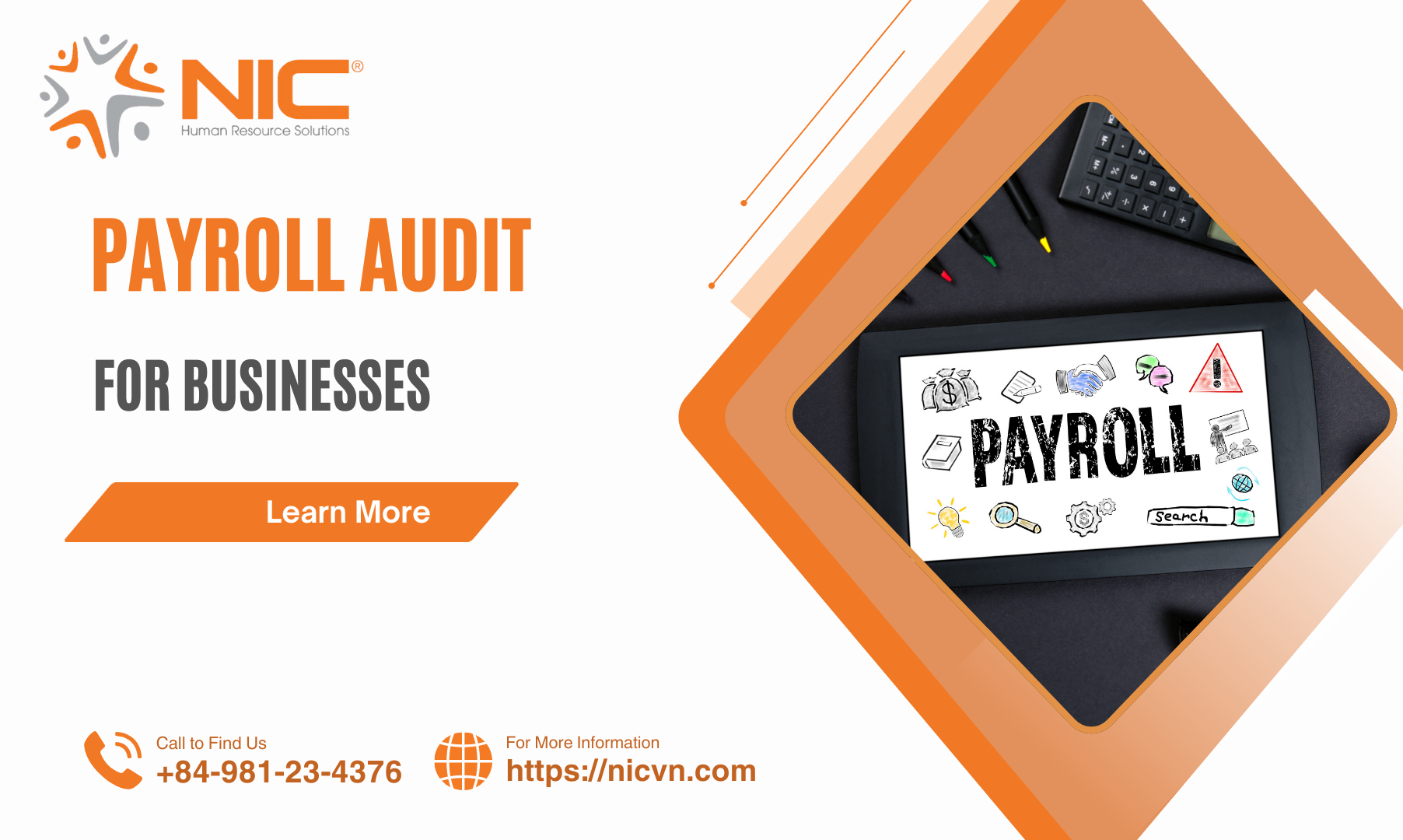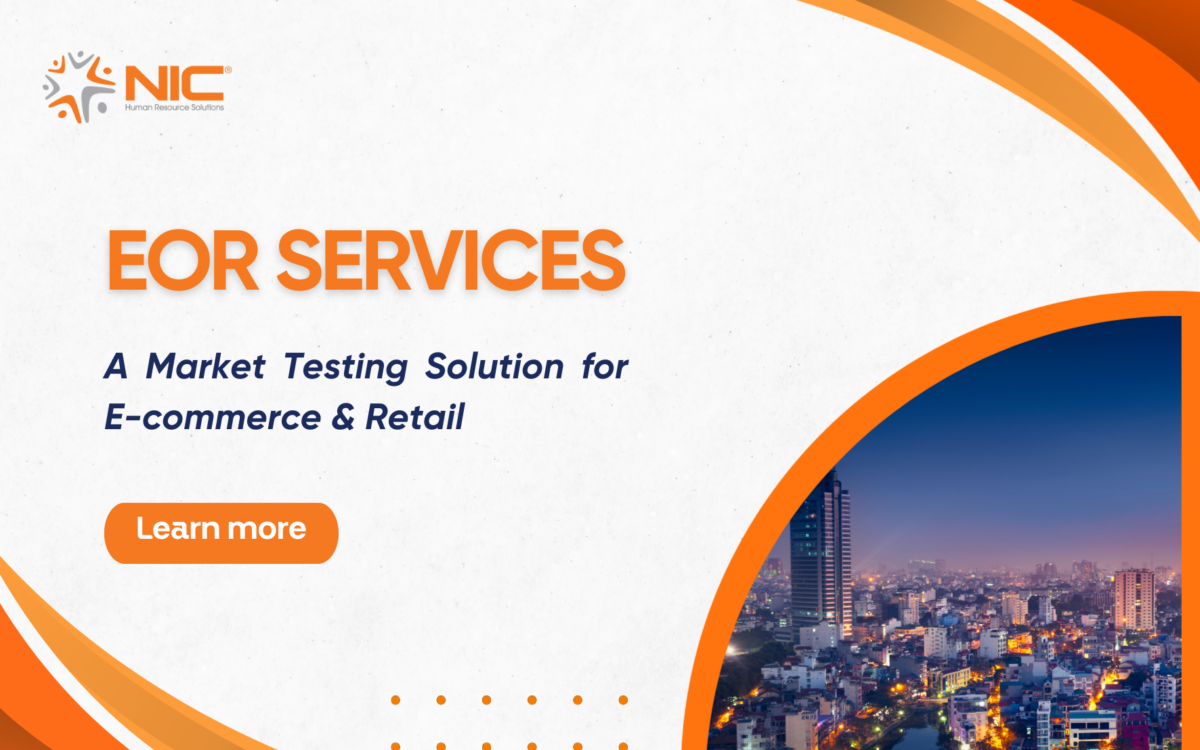Payroll Audit for Businesses:
Ensuring Accuracy, Compliance, and Efficiency
19/11/2024
Payroll errors are silent saboteurs. One unchecked mistake, and your company’s finances—and reputation—are at risk. A Payroll Audit is your best defense, catching issues before they explode into costly problems. Ready to make every paycheck flawless? Let’s dive into how payroll audits can safeguard your business.

Payroll Audit: Purpose and Types
A payroll audit is a structured process that verifies the accuracy of payroll data, checks compliance with labor and tax regulations, and identifies inconsistencies or fraud risks. Businesses perform payroll audits to confirm that all payments, withholdings, and deductions are accurate and that payroll processes comply with current regulations. This audit involves HR, payroll, finance departments, and sometimes external auditors.
Types of Payroll Audits
- Internal Payroll Audits: Conducted by internal HR or payroll teams, these audits assess current payroll processes to detect any gaps or inefficiencies. Internal audits enable the company to make early corrections and avoid external penalties.
- External Payroll Audits: Performed by a third-party auditor, these audits objectively assess the payroll process, identifying issues that internal teams might overlook. External audits are often initiated by management or requested by regulatory bodies.
- Regulatory Payroll Audits: Government agencies, such as the IRS or Department of Labor, may audit businesses to confirm adherence to tax laws and wage regulations. Preparing for these audits with internal payroll audits can prevent costly penalties.
Key Objectives of Payroll Audits
Payroll audits serve several essential functions, ensuring that businesses are:
- Accurately Reporting Taxes and Deductions: Ensuring correct tax withholdings for employees is crucial. Payroll audits confirm that tax filings are accurate and that deposits align with tax regulations, preventing potential penalties.
- Complying with Employment Laws: Payroll audits help companies comply with labor laws, ensuring proper wage calculations, overtime pay, and appropriate classifications for exempt and nonexempt employees.
- Providing Accurate Payroll Data: Audits confirm that payroll records accurately reflect hours worked, pay rates, and deductions, fostering transparency and trust with employees.
- Identifying Payroll Errors and Preventing Fraud: Errors in payroll can lead to costly penalties, while fraud can result in significant financial losses. Payroll audits detect errors and fraud indicators, helping protect business integrity.

The Process of Conducting a Payroll Audit
Conducting an effective payroll audit requires a systematic approach, covering several key steps:
- Set Clear Objectives: Define the audit’s scope and objectives. Determine if it’s a routine check, a pre-regulatory audit, or a response to suspected payroll issues.
- Assemble an Audit Team: Involve HR, payroll, and finance teams. Consider hiring an external auditor to provide an unbiased assessment for larger or high-stakes audits.
- Collect Necessary Documentation: Gather employee rosters, payroll registers, timesheets, tax records, and bank reconciliations. Accurate and complete data is essential for a thorough audit.
- Verify Employee Data: Ensure only active employees are on the payroll and that pay rates align with employment agreements. This check helps prevent ghost employees and outdated data entries.
- Check Hours Worked and Overtime: Cross-reference hours worked with timesheet data to confirm that hourly employees’ payments match their hours and overtime rates.
- Review Variable Payments and Deductions: Inspect bonuses, commissions, and deductions for accuracy, ensuring compliance with applicable tax regulations and company policies.
- Reconcile Payroll and Bank Statements: Confirm that payroll figures match bank account debits, ensuring that payments and deductions are consistent with payroll data.
- Report Findings and Suggest Improvements: Summarize audit results in a report, highlighting any discrepancies and proposing steps for improvement. Clear documentation is essential for future audits and regulatory inspections.
- Implement Necessary Changes: Address findings by making necessary adjustments in payroll processes. Regular audits allow businesses to refine their payroll systems over time.
Benefits of Payroll Audits for Businesses
A payroll audit can be transformative, delivering numerous advantages:
- Enhanced Accuracy and Efficiency: Regular payroll audits reduce the likelihood of errors, enhancing accuracy and operational efficiency. Accurate payroll data is essential for reliable financial reporting and regulatory compliance.
- Cost Savings and Risk Management: Payroll errors, if uncorrected, can lead to costly penalties. A payroll audit allows companies to catch and address issues early, avoiding penalties, legal complications, and back-pay claims.
- Improved Compliance: Payroll audits help businesses maintain compliance with ever-evolving labor and tax laws by identifying discrepancies in tax withholdings and wage calculations.
- Fraud Detection and Prevention: Payroll audits can reveal fraudulent activities, such as ghosting employees or unauthorized changes in pay rates. Identifying these risks early protects business integrity and financial stability.
- Positive Employee Relations: Employees expect fair and timely payment. Companies can foster trust and improve employee satisfaction by maintaining accurate payroll records and promptly addressing discrepancies.

Challenges of Implementing a Payroll Audit
Despite its benefits, payroll audits come with challenges that businesses must be prepared to address:
- Resource Intensity: Conducting payroll audits can be time-consuming, especially for larger organizations. Allocating resources efficiently, including trained personnel and appropriate technology, is essential.
- Complex Regulatory Compliance: Tax laws and labor regulations vary across regions, complicating payroll compliance for multi-location companies. Staying informed of relevant regulations requires diligence and ongoing training.
- Data Security Risks: Payroll data is highly sensitive and contains employee personal information and financial records. Ensuring data security throughout the audit process is paramount, especially in an era of growing cybersecurity threats.
- Resistance to Change: Implementing audit findings may require changes in payroll processes or systems. This can result in resistance from employees or departments that are reluctant to alter established practices.
- Human Error: Audits are susceptible to human error, particularly if data is manually managed. Automating data entry and integrating payroll software with audit systems can minimize errors.
Best Practices for a Successful Payroll Audit
For a successful payroll audit, consider the following best practices:
- Schedule Regular Audits: Establish a routine for payroll audits, either annually, quarterly, or monthly. Regular audits help businesses detect and correct issues proactively, reducing long-term risks.
- Leverage Payroll Software: Use payroll software with audit features to automate calculations, flag errors, and generate real-time reports. Integration with HR systems enhances data accuracy and facilitates smoother audits.
- Implement Strong Internal Controls: Effective internal controls, such as segregating payroll duties and establishing clear approval workflows, help prevent errors and fraud. It is crucial to review these controls regularly.
- Stay Updated on Regulations: Keep your payroll team informed of labor and tax law changes. Regular training and access to legal resources ensure ongoing compliance.
- Maintain Transparent Communication: Inform employees about audit findings and any resulting payroll changes. Transparent communication fosters trust and helps employees understand pay adjustments.
- Secure Sensitive Data: Protect payroll data by restricting access to authorized personnel, using encryption, and conducting regular security audits. Secure data handling is critical for building employee trust.
Payroll Audit Services: Why Partner with NIC Global?
NIC Global offers specialized payroll audit services to help businesses manage the complexities of payroll compliance, accuracy, and fraud prevention. With a team of seasoned experts, NIC Global provides tailored solutions to streamline payroll audits, ensuring that your payroll processes meet regulatory standards and enhance operational efficiency.
From customized audit checklists to automated software integration, NIC Global’s payroll audit services empower companies to focus on their core operations while achieving error-free payroll management. Partnering with a professional payroll audit service like NIC Global can provide an objective perspective, guiding businesses through the complexities of regulatory compliance and best practices.

Embracing the Value of Payroll Audits
Payroll audits are essential for any business looking to maintain compliance, ensure payroll accuracy, and protect against fraud. By regularly auditing payroll data, businesses can enhance operational efficiency, strengthen compliance, and support a positive work environment. While payroll audits may require an investment in resources and time, their benefits make them indispensable for long-term business success.
To gain a competitive edge in payroll management, consider NIC Global’s expert payroll audit services. Let us help you create a payroll system that aligns with best practices, promotes accuracy, and safeguards your business against risks.
For contact and support:
Facebook: NIC Global – Human Resource Solutions
Linkedin: NIC Global Sourcing JSC
Website: www.nicvn.com
Email: info@nicvn.com
Hotline: 0981.23.43.76
Address:
- Hanoi Office: No. 3A Thi Sach, Pham Dinh Ho Ward, Hai Ba Trung District, Hanoi, Vietnam
- Ho Chi Minh City Office: Dakao Center Building, 35 Mac Dinh Chi, District 1, Ho Chi Minh City, Vietnam
See more:
Payroll service
Staffing service
EOR service





